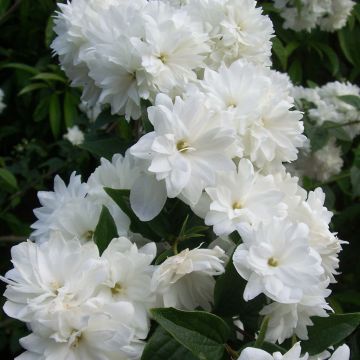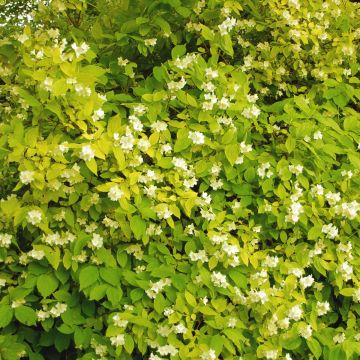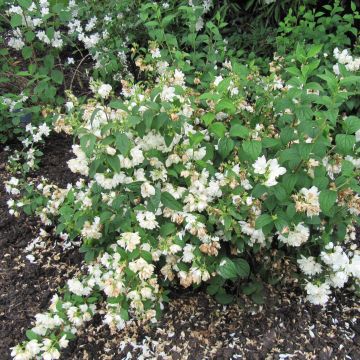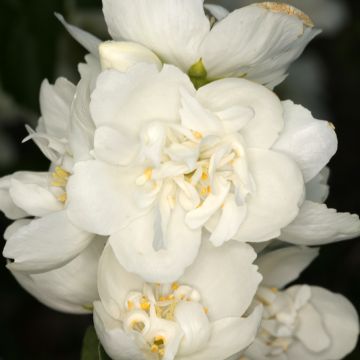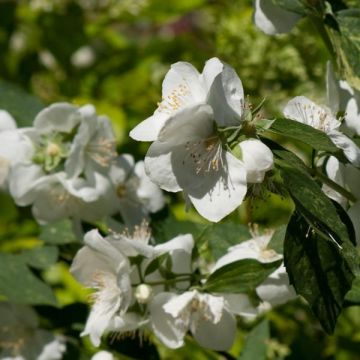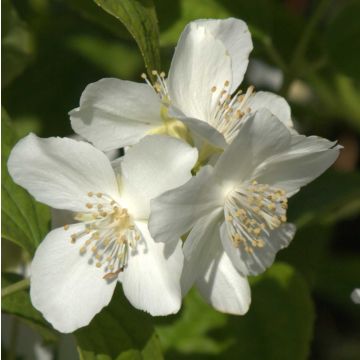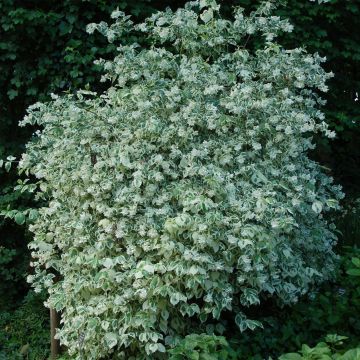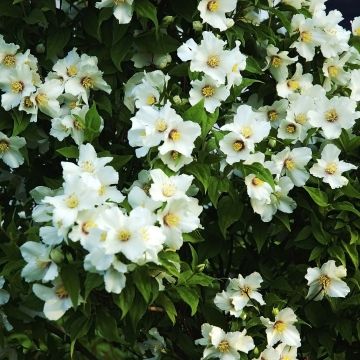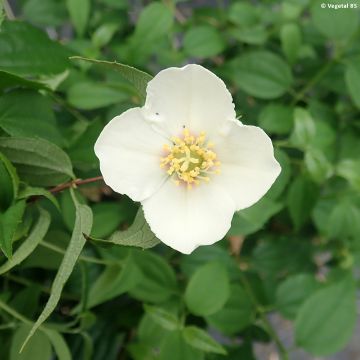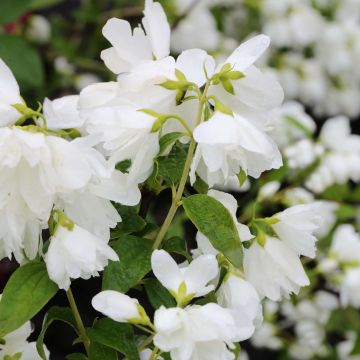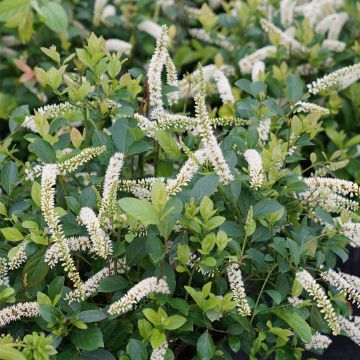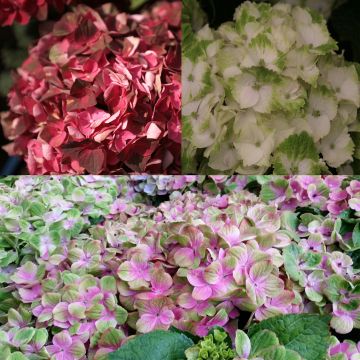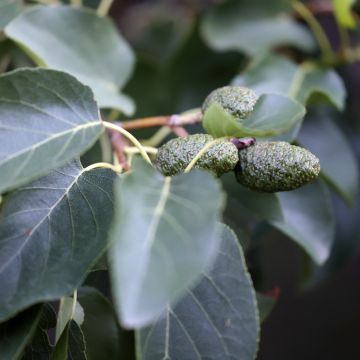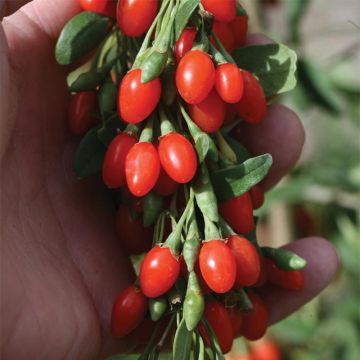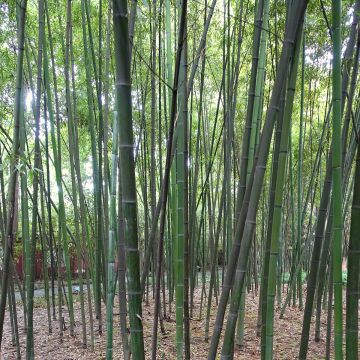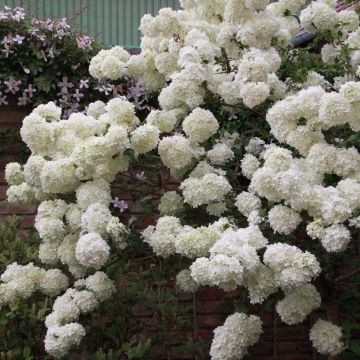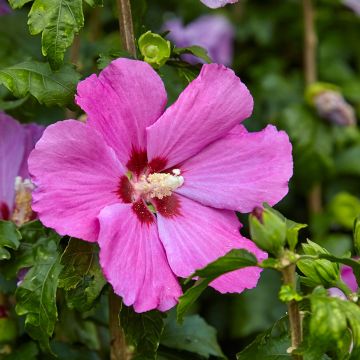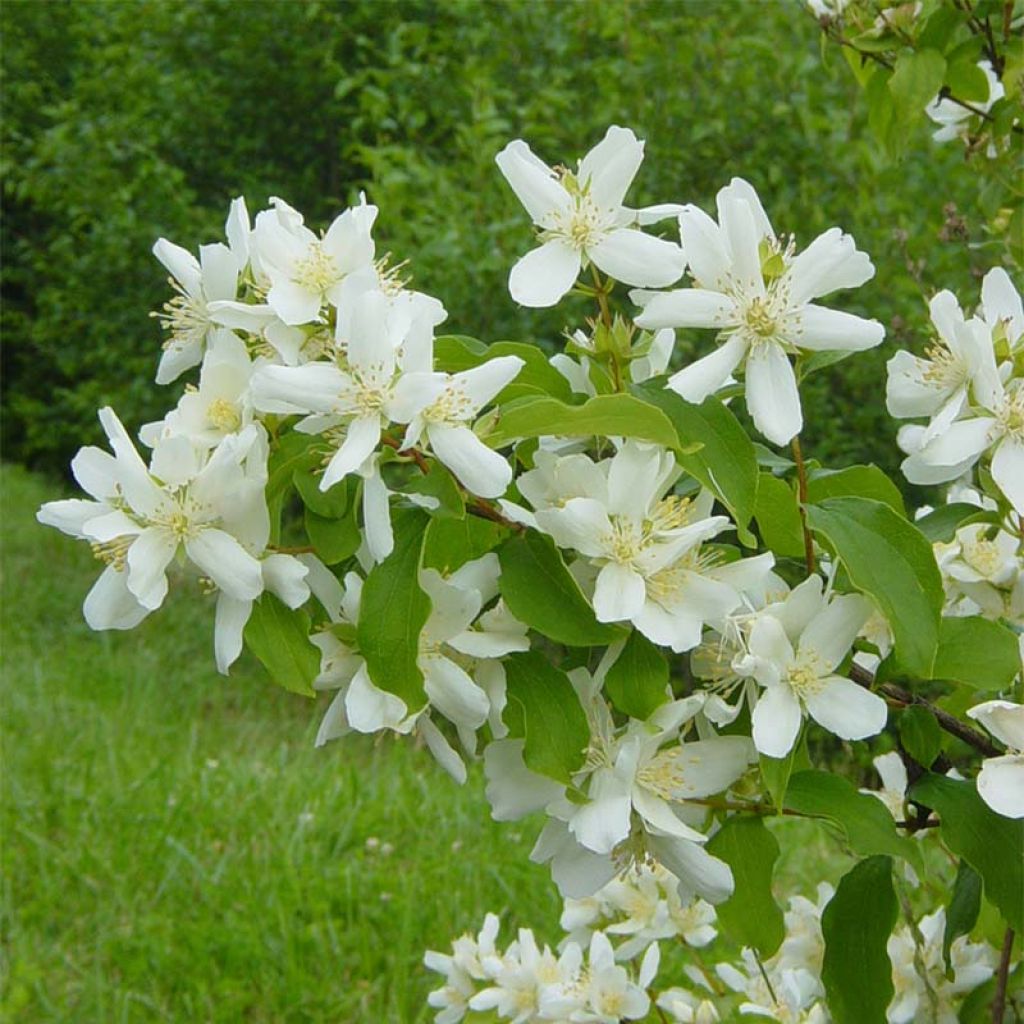

Philadelphus lemoinei - Mock Orange
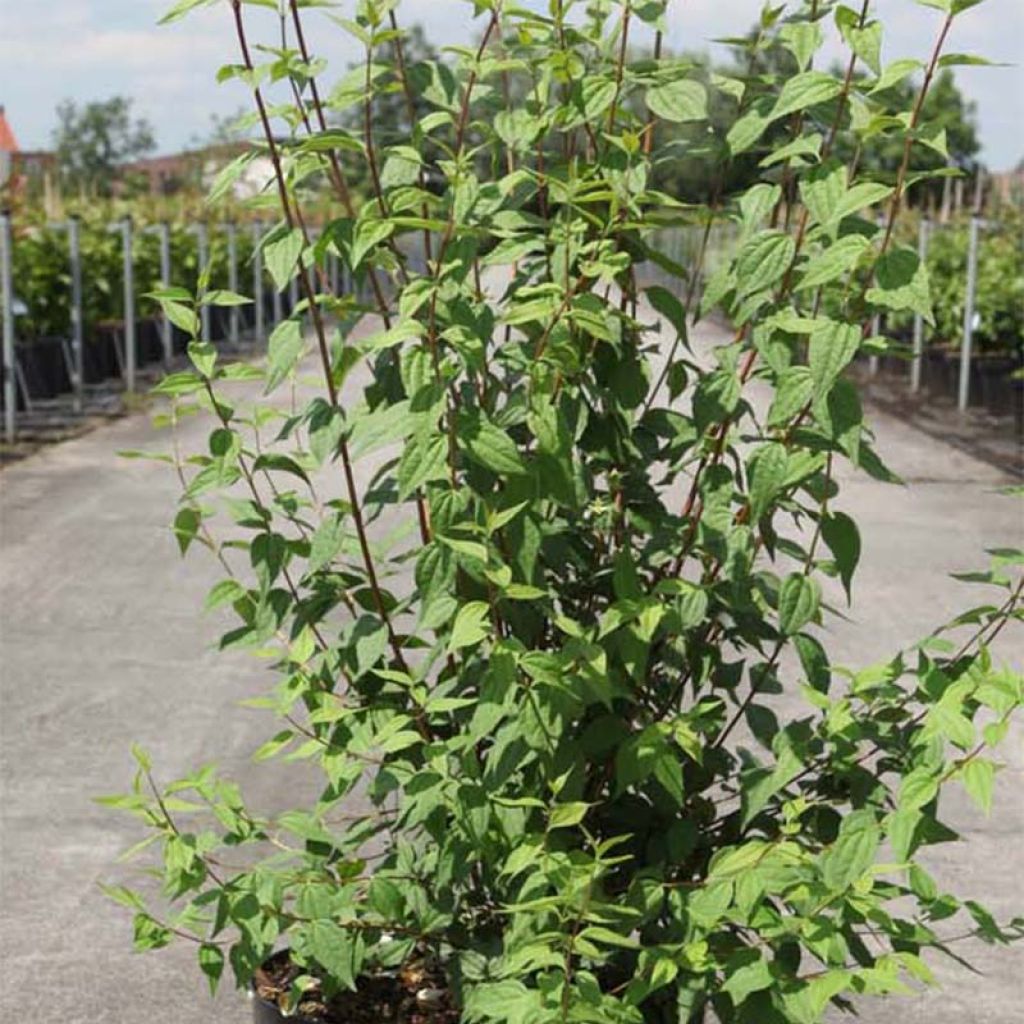

Philadelphus lemoinei - Mock Orange
View more pictures
Hide images
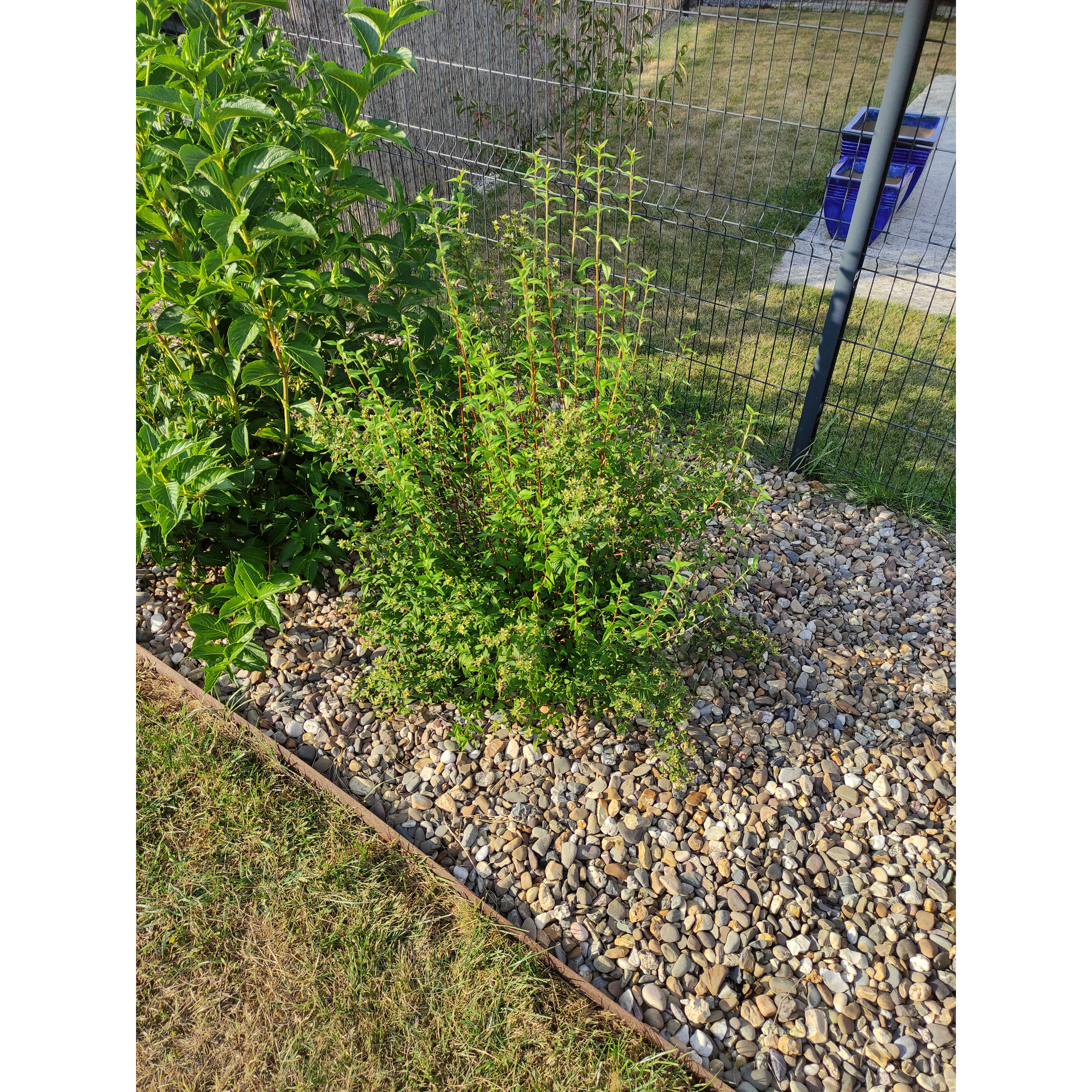
Julien M.

2 years after planting in clay soil - Sun exposure
Julien M. • BE
Philadelphus lemoinei - Mock Orange
Philadelphus x lemoinei
Mock Orange
Received bare-rooted, but all the roots were completely dry. It doesn't seem to be taking off.
Cangyel, 18/02/2025
Special offer!
Receive a €20 voucher for any order over €90 (excluding delivery costs, credit notes, and plastic-free options)!
1- Add your favorite plants to your cart.
2- Once you have reached €90, confirm your order (you can even choose the delivery date!).
3- As soon as your order is shipped, you will receive an email containing your voucher code, valid for 3 months (90 days).
Your voucher is unique and can only be used once, for any order with a minimum value of €20, excluding delivery costs.
Can be combined with other current offers, non-divisible and non-refundable.
Home or relay delivery (depending on size and destination)
Schedule delivery date,
and select date in basket
This plant carries a 24 months recovery warranty
More information
We guarantee the quality of our plants for a full growing cycle, and will replace at our expense any plant that fails to recover under normal climatic and planting conditions.

Would this plant suit my garden?
Set up your Plantfit profile →
Description
Philadelphus 'Lemoinei' is the first hybrid Mock Orange variety that we owe to Victor Lemoine, but also one of the most fragrant. An illustrious ancestor of many varieties, this graceful bush with an upright habit offers an abundance of single, beautifully scented white cup-shaped flowers that gently weigh down the slender branches in early summer. Not very tall, truly undemanding and very hardy, simple and full of charm, it finds a place in all gardens, even the smallest ones. Plant it in groups of 3 to 5 specimens in a large group or in a small informal hedge, along a pathway, under a window or even in a large container on the terrace!
All Philadelphus are deciduous shrubs native to temperate regions of the Northern Hemisphere, particularly East Asia and North America. The approximately 60 species that make up this genus were first crossed with each other in France by Jacques, then Lemoine and later in the United States, with the fragrance of the flowers sometimes being forgotten along the way in favour of more spectacular, double blooms. Very easy to grow in ordinary soil, mock oranges can sometimes take a little longer to establish. They should be regularly pruned after flowering, removing the oldest stems, to maintain a beautiful habit and ensure good flowering.
The Lemoine mock orange is a horticultural hybrid obtained in 1884 by Victor Lemoine (1823-1911), a brilliant hybridizer from Nancy, also known for his lilacs, clematis and shrubby peonies, many of which still exist and remain unmatched. This variety is derived from Philadelphus coronarius, native to southern Europe, and P. microphyllus, native to northern Mexico and southwestern United States. All these plants belong to the hydrangea family.
The Lemoine mock orange is a bushy shrub with brown wood and a dense habit, developing upright main stems carrying slender, slightly trailing secondary branches. Slow-growing, it reaches an average height of 1.5 metres (5 feet) with a spread of 1 metre (3 feet). In June-July, a multitude of small, single flowers open, 2.5 cm (1in) wide, with a maximum of 8 white petals arranged in a cup around a pale yellow stamen centre. They are gathered in small clusters of 3 to 5 flowers exhaling an intense fragrance reminiscent of orange blossom. Its small, deciduous leaves are medium green, slightly toothed, 5 cm (2in) long. They are entire, arranged opposite on the branches and characterized by their ovate shape, pointed tips, and lighter longitudinal veins running through the leaves.
Mock oranges, outside their flowering period, are shrubs of rather modest appearance that are best associated with other plants that flower at different times. Adaptable to all types of gardens and very easy to grow, they are suitable for beginner gardeners. They appreciate being planted in sunny or semi-shaded positions and will thrive in ordinary, even chalky, soil. With a modest stature and the charm of wild plants, the Lemoine mock orange is perfect for the background of mixed borders, mixed with other shrubs, in a countryside hedge with flowers, or even grown in containers on the terrace or balcony. Plant it near the house, terrace or pathways to fully enjoy its intense fragrance. When planted in partial shade, it will illuminate the garden with the whiteness of its flowers. As its flowering period is rather short, consider associating it with shrubs that bloom earlier or later (Deutzia, Buddleia, Forsythia, Caryopteris, lilacs, False Aralia...). Allow a small clematis to climb in its branches, surround it with a Fairy rose (pink, red or white), and they will give a wild and charming look to your composition. Its white flowering also allows for beautiful combinations with perennial plants that bloom in blue (or white, for the beauty of a pristine garden).
Report an error about the product description
Philadelphus lemoinei - Mock Orange in pictures
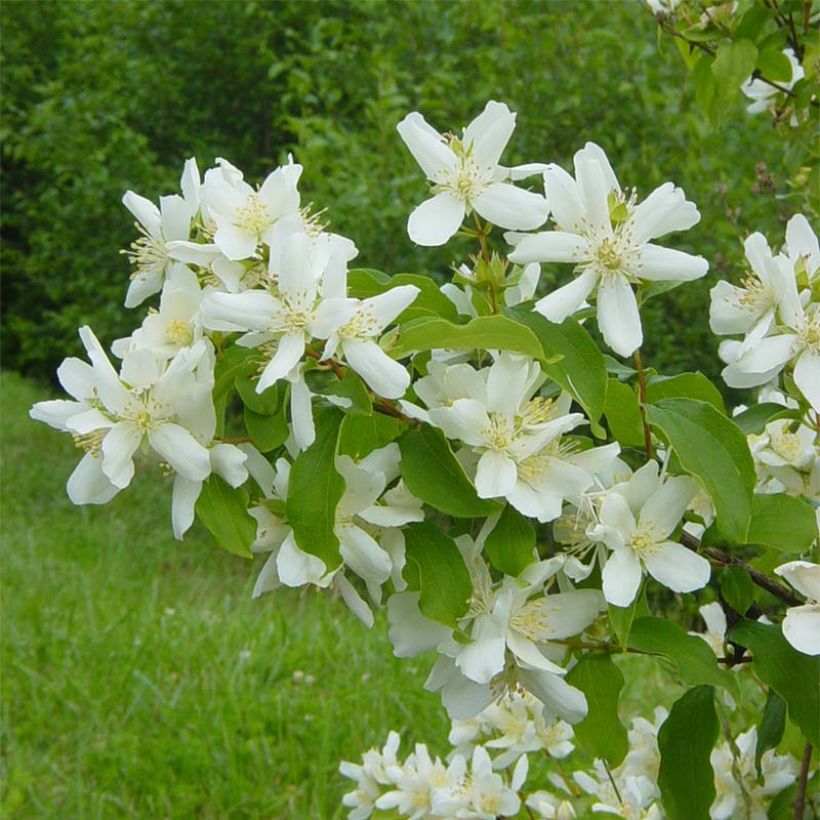

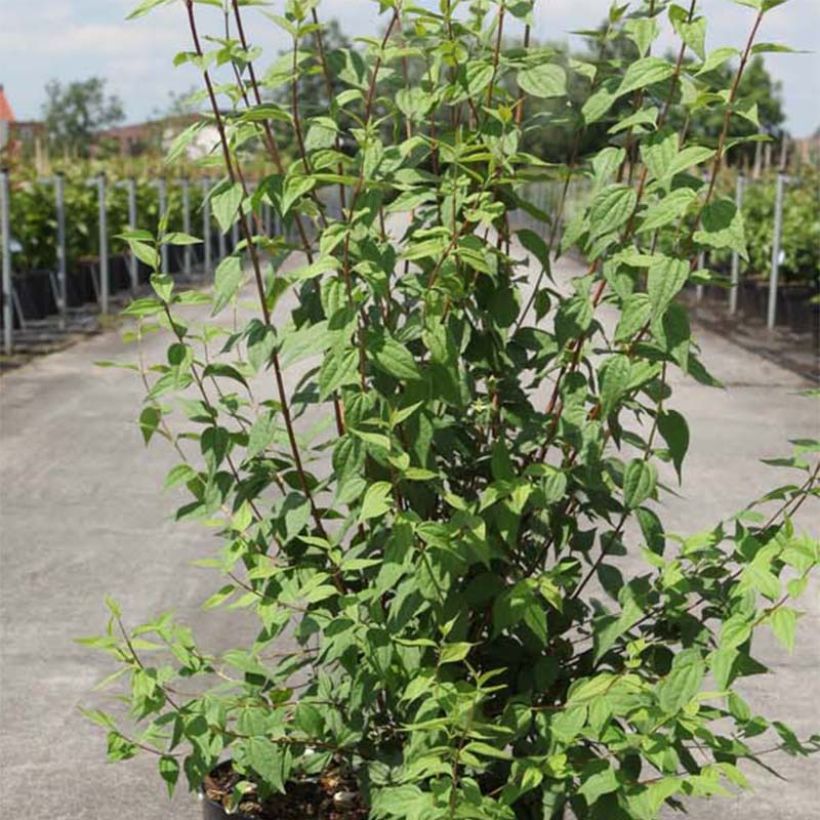

Plant habit
Flowering
Foliage
Botanical data
Philadelphus
x lemoinei
Hydrangeaceae
Mock Orange
Cultivar or hybrid
Other Philadelphus - Mock Orange
View all →Planting and care
Philadelphus Lemoinei is very easy to grow, requiring very little maintenance and very accommodating. It is well suited to all gardens and ideal for beginner gardeners. Ordinary, poor soil, even limestone, not too dry to moist, suits it. However, it will prefer moist, well-drained and humus-rich soil. Very hardy, it can withstand temperatures down to -20°C (1°F). Planting is done in early spring or autumn, preferably in full sun or partial shade. Excessive heat exposure should be avoided in dry and hot climates. Flowering on the previous year's shoots, Philadelphus should be pruned after flowering, in July-August, by shortening the branches that have bloomed by one-third of their length. More severe pruning can be done every 2 to 3 years to keep it compact and very floriferous. Cut the old wood and too-long branches to the base of the plant to encourage it to branch out. A resistant bush, it may, however, be susceptible to powdery mildew and black aphids.
Planting period
Intended location
Care
-
, onOrder confirmed
Reply from on Promesse de fleurs
Similar products
Haven't found what you were looking for?
Hardiness is the lowest winter temperature a plant can endure without suffering serious damage or even dying. However, hardiness is affected by location (a sheltered area, such as a patio), protection (winter cover) and soil type (hardiness is improved by well-drained soil).

Photo Sharing Terms & Conditions
In order to encourage gardeners to interact and share their experiences, Promesse de fleurs offers various media enabling content to be uploaded onto its Site - in particular via the ‘Photo sharing’ module.
The User agrees to refrain from:
- Posting any content that is illegal, prejudicial, insulting, racist, inciteful to hatred, revisionist, contrary to public decency, that infringes on privacy or on the privacy rights of third parties, in particular the publicity rights of persons and goods, intellectual property rights, or the right to privacy.
- Submitting content on behalf of a third party;
- Impersonate the identity of a third party and/or publish any personal information about a third party;
In general, the User undertakes to refrain from any unethical behaviour.
All Content (in particular text, comments, files, images, photos, videos, creative works, etc.), which may be subject to property or intellectual property rights, image or other private rights, shall remain the property of the User, subject to the limited rights granted by the terms of the licence granted by Promesse de fleurs as stated below. Users are at liberty to publish or not to publish such Content on the Site, notably via the ‘Photo Sharing’ facility, and accept that this Content shall be made public and freely accessible, notably on the Internet.
Users further acknowledge, undertake to have ,and guarantee that they hold all necessary rights and permissions to publish such material on the Site, in particular with regard to the legislation in force pertaining to any privacy, property, intellectual property, image, or contractual rights, or rights of any other nature. By publishing such Content on the Site, Users acknowledge accepting full liability as publishers of the Content within the meaning of the law, and grant Promesse de fleurs, free of charge, an inclusive, worldwide licence for the said Content for the entire duration of its publication, including all reproduction, representation, up/downloading, displaying, performing, transmission, and storage rights.
Users also grant permission for their name to be linked to the Content and accept that this link may not always be made available.
By engaging in posting material, Users consent to their Content becoming automatically accessible on the Internet, in particular on other sites and/or blogs and/or web pages of the Promesse de fleurs site, including in particular social pages and the Promesse de fleurs catalogue.
Users may secure the removal of entrusted content free of charge by issuing a simple request via our contact form.
The flowering period indicated on our website applies to countries and regions located in USDA zone 8 (France, the United Kingdom, Ireland, the Netherlands, etc.)
It will vary according to where you live:
- In zones 9 to 10 (Italy, Spain, Greece, etc.), flowering will occur about 2 to 4 weeks earlier.
- In zones 6 to 7 (Germany, Poland, Slovenia, and lower mountainous regions), flowering will be delayed by 2 to 3 weeks.
- In zone 5 (Central Europe, Scandinavia), blooming will be delayed by 3 to 5 weeks.
In temperate climates, pruning of spring-flowering shrubs (forsythia, spireas, etc.) should be done just after flowering.
Pruning of summer-flowering shrubs (Indian Lilac, Perovskia, etc.) can be done in winter or spring.
In cold regions as well as with frost-sensitive plants, avoid pruning too early when severe frosts may still occur.
The planting period indicated on our website applies to countries and regions located in USDA zone 8 (France, United Kingdom, Ireland, Netherlands).
It will vary according to where you live:
- In Mediterranean zones (Marseille, Madrid, Milan, etc.), autumn and winter are the best planting periods.
- In continental zones (Strasbourg, Munich, Vienna, etc.), delay planting by 2 to 3 weeks in spring and bring it forward by 2 to 4 weeks in autumn.
- In mountainous regions (the Alps, Pyrenees, Carpathians, etc.), it is best to plant in late spring (May-June) or late summer (August-September).
The harvesting period indicated on our website applies to countries and regions in USDA zone 8 (France, England, Ireland, the Netherlands).
In colder areas (Scandinavia, Poland, Austria...) fruit and vegetable harvests are likely to be delayed by 3-4 weeks.
In warmer areas (Italy, Spain, Greece, etc.), harvesting will probably take place earlier, depending on weather conditions.
The sowing periods indicated on our website apply to countries and regions within USDA Zone 8 (France, UK, Ireland, Netherlands).
In colder areas (Scandinavia, Poland, Austria...), delay any outdoor sowing by 3-4 weeks, or sow under glass.
In warmer climes (Italy, Spain, Greece, etc.), bring outdoor sowing forward by a few weeks.






























